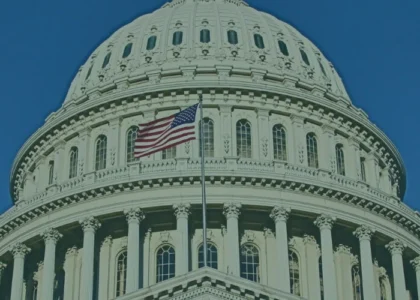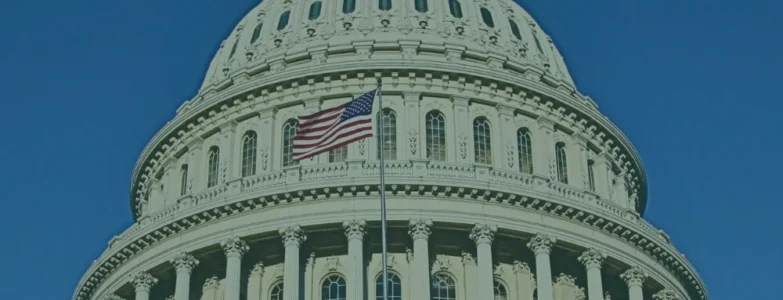President Trump signed a memorandum on August 8, 2020 that directs the Treasury Secretary to defer the withholding, deposit, and payment of the employee Social security taxes for wages paid beginning September 1 through December 31, 2020.
Background
- Employees pay a 6.2% Social Security tax on wages up to an annual limit ($137,700 in 2020).
- Employees also pay Medicare tax, but this is not affected by the executive memorandum.
Memorandum
The memorandum states that amounts deferred “shall be deferred without any penalties, interest, additional amount, or addition to the tax.” It also directs the Treasury Secretary to “explore avenues, including legislation, to eliminate the obligation to pay the taxes deferred pursuant to the implementation of this memorandum.”
However, there are many questions that remain unanswered until the Internal Revenue Service (IRS) issues guidance.
Who is eligible for the payroll tax cut holiday?
If you earn no more than $4,000 every two weeks, for a maximum of $100,000 per year. People who earn more than that will not be able to participate in the payroll tax holiday. “It is not clear how this payroll tax deferment would affect self-employed workers and contractors who usually pay their Social Security taxes with their income taxes.
The IRS is expected to clarify whether a per-payroll limit will be enforced, an annual limit, or some combination of the two.
· Pay fluctuations
The IRS also may need to clarify whether employers would be expected to adjust the deferral as employees fluctuate above and below the limit. For example, if an employee is paid $4,100 in a biweekly pay period, they would pay the full 6.2% on such earnings ($254.20). If the same person was paid $3,100 in the subsequent bi-weekly pay period, they would qualify for deferral of Social Security taxes on the $3,100. It’s unclear whether the employer would be expected to refund the $254.20 withheld on the prior payroll, since the average earnings after September 1 is less than $4,000.
· What about Nonwage income?
Does the deferral apply strictly to wage income? For instance, employees may be eligible for the deferral based on wages, but they may have significant nonwage income, which could disqualify them from the deferral.
- Employer Reporting Requirements
The IRS will need to advise employers if there will be reporting requirements associated with the deferral, ADP explains. Employers may need to separately report qualified Social Security wages paid during the deferral period on the Form W-2 and Form 941, and possibly other information.
- Please note the Payroll Tax Cut Holiday is not a ‘forgiveness’ or a tax contribution
It is not a tax contribution but a “pause.” You will have to pay back the payroll tax money you get unless Steven Mnuchin decides later to forgive the deferment. It is unclear how you would pay back the payroll tax money received from the ‘Tax Cut Holiday.’ Some say that the taxes you owe could be incorporated into your 2020 income taxes. According to C | Net, President Trump, in a press briefing, said he might forgive the debt if he gets reelected in November.
|
Read here: Memorandum on Deferring Payroll Tax Obligations in Light of the Ongoing COVID-19 Disaster |
On August 12, the American Institute of Certified Public Accountants (AICPA) sent a letter to Treasury and the IRS requesting guidance on several issues related to the recent presidential memorandum:
- Stating that an eligible employee is responsible for making an affirmative election to defer the payroll taxes;
- Stating that an eligible employee can make an affirmative election at any time from September 1, 2020, to December 31, 2020, and if an employee does not elect to defer Social Security taxes, taxes will continue to be withheld, deposited, and paid;
- Stating that an “eligible employee” is an employee whose wages are less than $4,000 (or equivalent amount depending on the employer’s pay period) per biweekly period;
- Providing a model notice for employers to furnish to eligible employees to inform them that the election to defer Social Security taxes is available for September 1 2020, to December 31 2020, period;
- Stating that the payroll amount used to determine eligibility is a cliff; if the wage amount for a specified pay period is above $4,000 or the equivalent amount based on the employer’s regular payroll periods, no deferral is permitted;
- Stating that the $4,000 limit should apply separately to each employer of an employee;
- Stating that it is the responsibility of the employee and not the employer to pay the deferred payroll taxes;
- Stating which penalties are waived as a result of this deferral, including the penalty applicable to responsible parties;
- Addressing whether the increase in take-home pay attributable to the deferred taxes can be used to satisfy other employee obligations such as Sec. 401(k) loan repayments, garnishments, and child support payments; and
- Stating a payment due date(s) for the deferred taxes and a mechanism for employees to pay the deferred taxes.
We are closely monitoring this matter, and we hope the IRS issues guidance as soon as possible, aimed at clarifying the many questions this memorandum has left.
Sources: WhiteHouse.gov, AICPA, ADP, WSJ, C|Net.











